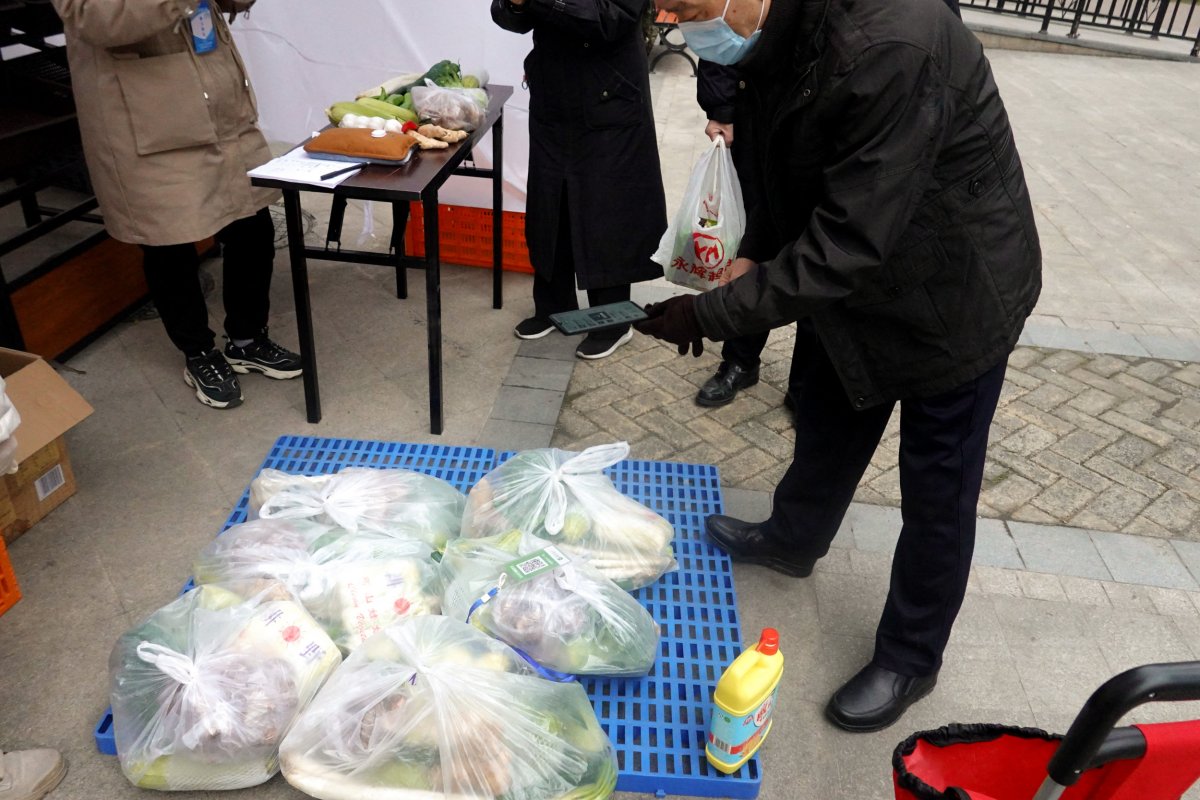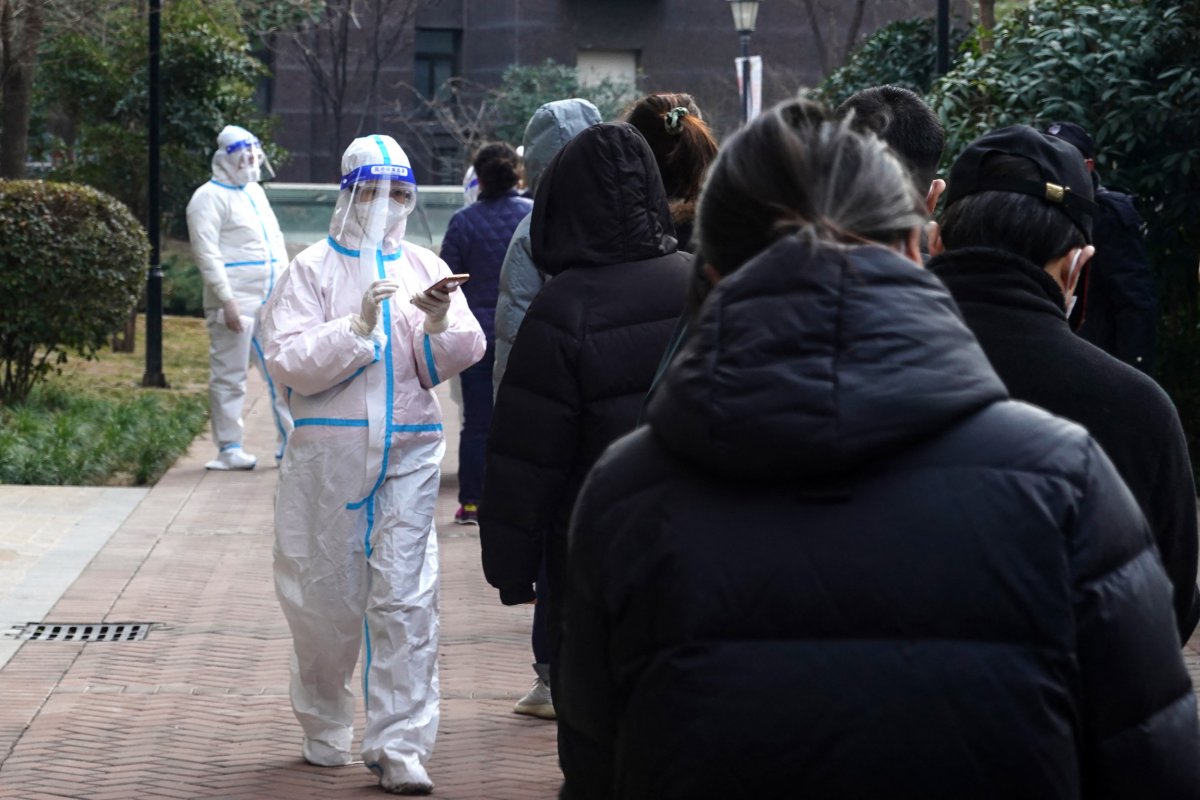Residents in northwest China succeeded in ending their month-long lockdown after a rare neighborhood protest forced a change in policy.
Now deleted footage that emerged on China's main social media service, Weibo, showed dozens of people demonstrating inside a residential area in Xi'an's Yanta district in Shaanxi province. The city of 13 million people was placed under a full lockdown on December 23, but the neighborhood in question had already been quarantined a week earlier. The indefinite lockdown was causing distress and affecting their livelihoods, the neighbors shouted.
The protesters appeared to come to blows after police officers arrived to manage the crowd, with a number of residents apparently pinned to the ground. The local public security bureau reported no arrests resulting from the "mass incident," a term the Chinese government uses for instances of civil disobedience.
Trending Weibo posts reportedly written by homeowners inside Huacheng International, the neighborhood in the south of Xi'an, said they had been living under the strictest of public health measures since December 18, following an outbreak of the Delta variant of COVID elsewhere in the city. Each member of every household was tested regularly for more than a month, but none of the apartment buildings in the complex ever returned a positive case.
Chinese cities currently battling Delta and Omicron clusters sort their districts into three public health categories: lockdown, control and prevention. In the first, residents aren't allowed to leave their homes; in the second, each household is permitted to send one family member to purchase supplies every two days; and in the third, their movements are restricted to their immediate area.

Over a period of more than 30 days, residents in Huacheng, like others in Xi'an, spent Christmas and New Year in their apartments. Some complained about having to live off government-supplied rations, while others had no choice but to buy expensive groceries via the neighborhood's property management agency. No one could leave.
The unrest began earlier this week when Xi'an began a partial easing of lockdown in certain residential areas. Some public transport resumed and certain businesses reopened as the city reported no new infections on Tuesday and Wednesday—the first zero COVID days since last year.
According to social media posts, Huacheng residents requested a downgrade of the neighborhood's status from quarantine to control, allowing them some sort of freedom. A screenshot of a message said to be distributed by the property agency said the local government had given its approval and would announce the change on Wednesday.
However, another notice on Thursday said the request was denied because of a returning homeowner who had been in centralized quarantine where a positive COVID case was found earlier this month. Huacheng could apply again for a downgrade on Saturday, according to the notification. Residents were outraged.
In republished versions of Weibo videos, dozens of people were seen swarming the property agency's office, demanding an end to their lockdown. The residents shouted when staff members called the police, who were later involved in what appeared to be physical altercations.
Hours later, state media announced a partial downgrade of several Huacheng apartment blocks from quarantine to control status. Local residents declared victory by saying the policy change would never have happened without their demonstration to "protect [their] rights."
China has fully vaccinated nearly 90 percent of its population, but it remains one of the only countries still pursuing a zero-COVID policy. The no-tolerance approach is expected to last throughout the year as it hosts the Winter Olympics in Beijing and a number of other sporting events in the spring and summer. This autumn, the Chinese Communist Party will hold its 20th National Congress, where China's President Xi Jinping is expected to secure an unprecedented third term.
The public health measures are harsh on residents, but highly effective. Xi'an has reported more than 2,000 infections since December 9, but the city's cluster appears to have fizzled out. On Thursday, China's National Health Commission said there were 43 locally transmitted cases across the country on January 19, including more than a dozen in the port city of Tianjin, 80 miles southeast of Beijing, where health authorities are tracking an Omicron cluster that grew by an additional five infections on January 20.

Uncommon Knowledge
Newsweek is committed to challenging conventional wisdom and finding connections in the search for common ground.
Newsweek is committed to challenging conventional wisdom and finding connections in the search for common ground.
About the writer
John Feng is Newsweek's contributing editor for Asia based in Taichung, Taiwan. His focus is on East Asian politics. He ... Read more
To read how Newsweek uses AI as a newsroom tool, Click here.








